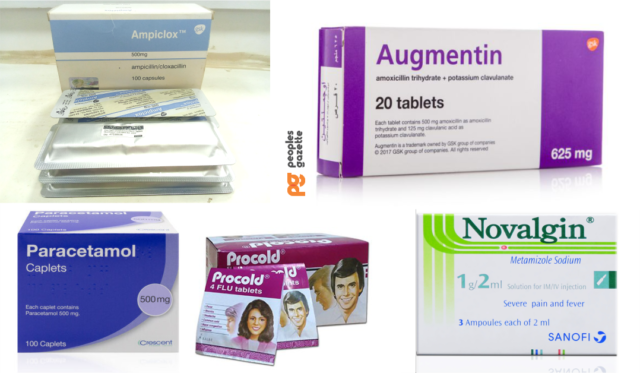A new survey has revealed that the economic hardship assailing Nigerians under President Bola Tinubu has continued to cause incessant hikes in the prices of drugs for malaria and other common conditions.
The survey conducted by SBM Intelligence, titled: ‘Paying The Price on Health’, compared the prices of pharmaceutical products back in 2019 with their prices as of November 20, 2023.
Amid unfavourable economic circumstances in the country, British multinational pharmaceutical giant GlaxoSmithKline, in August 2023, announced plans to cease operations in the country after 51 years. Sanofi, another global pharma organisation that produced polio vaccines, also said it was winding down its Nigerian business starting last month.
In the painkillers category, Brustan 400mg, which used to sell at N200 in 2019, now sells for N300. Cataflam 50mg is now being sold at N1,300 from only N700 in 2019. Athrotec, sold for N1,100 in 2019, is now sold for N1,800, SBM said in its report due to be released on Tuesday.
Some of the steepest price changes were observed in essential analgesics like paracetamol 500mg, which now costs N150 from only N40 in 2019. From N70 in 2019, novalgin now costs costs N150 at pharmacies.
In the antibiotics category, SBM’s survey shows that Beecham Ampiclox CAPS 500mg, which was sold across the country in 2019 for N750, is now N9,000. Augmentin 625mg, N4,000 in 2019, is now N26,000; TAB Zinnat 50mg was N2,800 is now N13,000; and the price of TAB Ciprotab 500mg rose from N1,500 in 2019 to N2,800 in 2023.
In the common cold medicines category, the SBM findings revealed that procold sold for N70 in 2019 but now sells for N250.
Furthermore, Amoxil 500mg jumped from N1,000 in 2019 to N8,350; CAPS Zithromax 250mg, which was N2,500 is now N7,200; Doxycap used to be N300 in 2019, now sells for N850; Cipro- TAB that was N2,000 in 2019, is now N3,850; Levoxin 500mg that was N1,150 in 2019 now goes for N2,300; while Orelox 200mg that cost N2,200 in 2019, is now N9,500.
Finally, in the antimalarials category, the data revealed that Lonart DS used to N1,300 in 2019 but is now N2,500; Amatem 80/480 was N1,200 in 2019 and is now sold for N2,200; Loqma QS was N850 and is now N1,100; P-Alaxin TS that was N900 in 2019 is now N1,400; while coartem 80/40 that was N1,600 in 2019, is now sold for N3,000.
A spokesman for the federal ministry of health did not return a request seeking comments about SBM’s report and the overall government policy to check rising drug prices.
SBM said the manufacturers have adopted the option of a third-party distribution model for their products in Nigeria. However their moves would therefore translate to the hike in the prices of these products which are now being imported into the country.
The eventual prices of the products, where at all available, are now determined by the cost of importation into the country, forex, rate of naira to the dollar, amongst others, which could further complicate patients’ ability to access or afford the medicinal products as they are either too exorbitant or scarce.
Explaining the incessant hikes in the prices of medicines, SBM quoted Boladele Silva, a pharmaceutical professor at the University of Lagos, as saying that the country’s pharmaceutical industry is hugely exposed to shocks from foreign exchange volatility.
“In Nigeria, what we have are packaging hubs. The active pharmaceutical ingredients and most excipients used by the manufacturers are imported. That makes them very vulnerable to economic shocks,” he said.
He added that the rising cost of drugs in Nigeria “is forcing patients to skip doses or forgot treatment altogether, based on anecdotal observations,”
SB Morgan warned that the crisis could “lead to the development of drug resistance, making it more difficult to treat infections,” with further potential to “worsen chronic conditions, leading to increased morbidity and mortality.”







